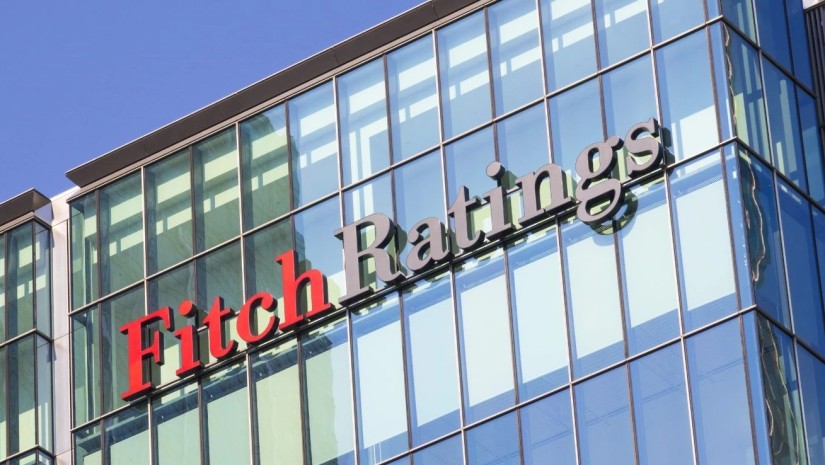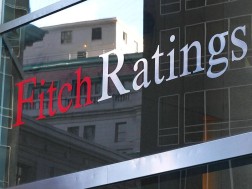Fitch Ratings has revised the Outlook on Georgia's Long-Term Foreign-Currency Issuer Default Rating (IDR) to Negative from Stable, and affirmed the IDR at 'BB'.
A full list of rating actions is at the end of this rating action commentary.
Key Rating Drivers
The revision of the Outlook reflects the following key rating drivers and their relative weights:
High
Sharply Increased Political Risk: Fitch views political and societal polarisation to have notably increased following the disputed parliamentary elections in October, in which the Georgian Dream party retained power, with 89 out of 120 seats. The opposition and most Western countries have thus far refused to formally acknowledge the results, citing malpractices, and the opposition has pledged to boycott parliament. Changes to the system of presidential elections (due on 14 December) are also set to be controversial, with the incumbent pre-emptively refusing to vacate office in the event of defeat.
In Fitch's view, political risks are likely to remain very high, as manifested through large protests and legal challenges. A protracted political crisis could undermine the institutional framework and affect investor and domestic confidence, exerting pressure on external liquidity and the exchange rate. Combined with weakened trust in public institutions, this will likely negatively affect Georgia's governance indicators, a long-standing strength relative to peers.
Relations with External Parties: Following the elections, the Georgian government has announced a postponement of its EU accession dialogue until at least 2028, which has further galvanised protests, given an estimated 85% of the population favours EU membership, and the government is constitutionally obliged to seek it. If unrest escalates, relations with key Western countries could be further strained, potentially leading to lower foreign direct investment (FDI) inflows or multilateral disbursements.
Risks to Policy Framework: Political tensions may also delay or complicate reforms such as boosting the independence of the National Bank of Georgia (NBG) through legislation, or reforming state-owned enterprises. Fitch does not expect the current precautionary IMF programme (suspended since 3Q23) to be restored, weakening the capacity of Georgia's small, open and dollarised economy to respond to external shocks effectively.
Weaker International Reserve Cover: International reserves fell 13% month-on-month (USD627.5 million) to USD4.1 billion in October, equivalent to just 2.1 months of current account payments (CXP; current 'BB' median: 4.7 months), and the lowest level since 1Q21. The large drop was driven by the NBG's USD591 million FX sales in the run-up to the elections (likely to pre-empt large volatility in the lari exchange rate pre-elections) and increased FX demand from corporates (mainly through purchase of currency forwards). Reserves have since marginally risen to USD4.12 billion as of end-November.
Policy Response: The NBG has since affirmed its commitment to a floating exchange rate and pledged to accumulate FX reserves - the NBG's Acting Governor has stated that it purchased USD124.5 million in November, but in Fitch's view, future sales cannot be ruled out. Effective mid-December, the NBG will increase the FX minimum reserve requirements for banks by 5pp, which will likely boost FX reserves. Fitch expects international reserves to remain flat at around 2.3 months of CXP over 2025-26, given continued large current account deficits (CAD) (relative to rating peers) and a weaker outlook for FDI.
Medium
Weak External Finances: Georgia's large, structural CAD is a consistent credit weakness, and is set to continue. The CAD averaged 5.9% of GDP in 1H24, with Fitch projecting 5.2% for the full year and an average of 5.5% in 2025-26. Tourism sector performance (revenue growth of 5.2% yoy in 1H24) and merchandise export growth (7.4% yoy in January-October) are the key drivers. Fitch observes a large increase in the trend of re-exports (which accounted for 57% of all goods exports in January-October), primarily of motor cars, mostly to other countries in the region, emphasising Georgia's continuing role as a transit country for trade with Russia.
Fitch expects that FDI will likely not fully cover sustained large CADs over the forecast horizon, given a deterioration in relations with major Western countries (the largest source of FDI for Georgia). Inbound FDI contracted by 34% yoy in 1H24, although it is unclear if this is in direct response to the worsening of relations between Georgia and the EU/US since the start of the year. Georgia's net external debt is projected at 44.1% of GDP for 2024 and will remain about 3x the peer median through to 2026.
Georgia's BB IDRs also reflect the following rating drivers:
Solid Economic Growth: Real GDP growth was robust at 10% in January-October 2024 (2023: 7.8%), driven by strong services sector performance, notably tourism and information and communications technology (ICT), construction as well as strong exports. The relatively well-diversified economy is likely to remain resilient to the ongoing political crisis. In Fitch's view, there has been a lasting boost to potential growth (currently estimated at 4.5%) from the large scale influx of Russian and Ukrainian immigrants since 2022, which has led to value and capacity addition in the construction and ICT sectors. Fitch expects growth of 8.7% in 2024, moderating to 5.3% in 2025 and 5% in 2026.
Inflation & Monetary Policy: Inflation averaged 1% in January-November 2024, well below the 3% target, mainly owing to weak domestic price growth. Fitch expects inflation to increase to 2.1% on average in 2025 and 2.3% in 2026, with sharper lari depreciation providing an upside risk. The NBG has cut rates by a cumulative 150bp in 2024 to 8% and further cuts are unlikely. Monetary policy is constrained by relatively high levels of dollarisation - corporate deposit dollarisation increased by 2.6pp month-on-month in October to 37.5%, likely indicating increasing expectations of lari weakening in the run-up to elections. Loan dollarisation has remained largely stable at 43.3% as of end-October.
Low Fiscal Deficits: Georgia has a strong record of overperforming budget targets, owing to stronger than projected revenue collection. Fitch expects the general government deficit to narrow from 2.7% of GDP in 2024 to 2.5% in 2025 and 2.3% in 2026, well below the 3% deficit ceiling.
Moderate Debt Levels: Gross general government debt (GGGD) stood at 38.1% of GDP as of May 2024 (current 'BB' median: 55.2%). Fitch projects GGGD/GDP to average 38.7% in 2025-26 (well below the 60% debt ceiling), with exchange rate depreciation a key risk to debt dynamics. 90% of external debt is owed to bilateral and multilateral creditors on concessional terms. Fitch expects a USD500 million Eurobond to be refinanced on the international markets upon maturity in April 2026.
Georgia has an ESG Relevance Score of '5' for political stability and rights, and '5[+]' for the rule of law, institutional and regulatory quality, and control of corruption, respectively. These scores reflect the high weight that the World Bank Governance Indicators (WBGI) have in our proprietary Sovereign Rating Model (SRM). Georgia has a medium WBGI ranking at the 61st percentile, reflecting moderate institutional capacity, established rule of law, a moderate level of corruption, and political risks associated with the unresolved conflict with Russia.
RATING SENSITIVITIES
Factors that Could, Individually or Collectively, Lead to Negative Rating Action/Downgrade
- Structural: Substantial worsening of domestic political or geopolitical risks with adverse consequences for economic performance, governance or access to external financing.
- External Finances: Continued, sustained decline in international reserves, e.g., due to large capital outflows or a sharp drop in FDI.
- Macro: A weakening of Georgia's policy framework that creates risks for macroeconomic and financial stability.
Factors that Could, Individually or Collectively, Lead to Positive Rating Action/Upgrade
- Structural: A sustained reduction in domestic political risks, resulting in greater confidence in the policy framework.
- External Finances: A substantial reduction in external vulnerability, for example, from a recovery in international reserves and/or narrowing in the current account deficit.
Sovereign Rating Model (SRM) and Qualitative Overlay (QO)
Fitch's proprietary SRM assigns Georgia a score equivalent to a rating of 'BBB-' on the Long-Term Foreign-Currency (LT FC) IDR scale. In accordance with its rating criteria, Fitch's sovereign rating committee decided not to adopt the score indicated by the SRM as the starting point for its analysis because in our view this is potentially a temporary improvement. Consequently, the committee decided to adopt 'BB+' as the starting point for its analysis.
Fitch's sovereign rating committee adjusted the output from the adopted SRM score to arrive at the final LT FC IDR by applying its QO, relative to SRM data and output, as follows:
- External Finances: -1 notch to reflect Georgia's high net external debt and the country's vulnerability to external shocks as a small, open and highly dollarised economy with relatively weak external buffers.
Fitch's SRM is the agency's proprietary multiple regression rating model that employs 18 variables based on three-year centred averages, including one year of forecasts, to produce a score equivalent to a LT FC IDR. Fitch's QO is a forward-looking qualitative framework designed to allow for adjustment to the SRM output to assign the final rating, reflecting factors within our criteria that are not fully quantifiable and/or not fully reflected in the SRM.
Country Ceiling
The Country Ceiling for Georgia is 'BBB-', 2 notches above the LT FC IDR. This reflects strong constraints and incentives, relative to the IDR, against capital or exchange controls being imposed that would prevent or significantly impede the private sector from converting local currency into foreign currency and transferring the proceeds to non-resident creditors to service debt payments.
Fitch's Country Ceiling Model produced a starting point uplift of +2 notches above the IDR. Fitch's rating committee did not apply a qualitative adjustment to the model result.
REFERENCES FOR SUBSTANTIALLY MATERIAL SOURCE CITED AS KEY DRIVER OF RATING
The principal sources of information used in the analysis are described in the Applicable Criteria.
ESG Considerations
Georgia has an ESG Relevance Score of '5' for political stability and rights as WBGI have the highest weight in Fitch's SRM and are therefore highly relevant to the rating and a key rating driver with a high weight. As Georgia has a percentile rank below 50 for the respective governance indicator, this has a negative impact on the credit profile.
Georgia has an ESG Relevance Score of '5[+]' for rule of law, institutional, regulatory quality, and control of corruption as WBGI have the highest weight in Fitch's SRM and are therefore highly relevant to the rating and are a key rating driver with a high weight. As Georgia has a percentile rank above 50 for the respective governance indicators, this has a positive impact on the credit profile.
Georgia has an ESG Relevance Score of '4' for human rights and political freedoms as the voice and accountability pillar of the WBGI is relevant to the rating and a rating driver. As Georgia has a percentile rank below 50 for the respective governance indicator, this has a negative impact on the credit profile.
Georgia has an ESG Relevance Score of '4' for creditor rights as willingness to service and repay debt is relevant to the rating and is a rating driver for Georgia, as for all sovereigns. As Georgia had a restructuring of public debt in 2004, this has a negative impact on the credit profile.
The highest level of ESG credit relevance is a score of '3', unless otherwise disclosed in this section. A score of '3' means ESG issues are credit-neutral or have only a minimal credit impact on the entity, either due to their nature or the way in which they are being managed by the entity. Fitch's ESG Relevance Scores are not inputs in the rating process; they are an observation on the relevance and materiality of ESG factors in the rating decision. For more information on Fitch's ESG Relevance Scores, visit www.fitchratings.com/topics/esg/products#esg-relevance-scores.






















